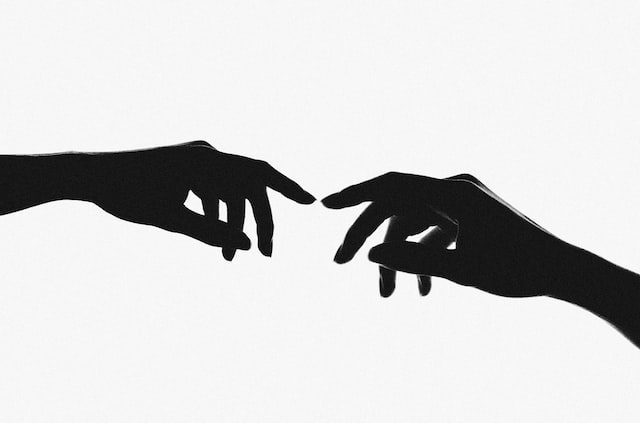
I started watching the new Netflix series “Bridgerton.” Let it be known that I become feverishly addicted to all of Shonda Rhimes productions, and this one doesn’t disappoint. Interestingly, there was a scene that made me recall a blog I recently read on this forum. The article was entitled “My Wife is NOT My Best Friend.” I remember reading it and thinking about how unfortunate it is for a married couple to not view one another as their best friend. The last 16 years of my life have been spent with my best friend, my husband.
In the scene from Bridgerton, episode 5, Simon and Daphne must make a plea to the Queen to be granted a license to marry. The Queen asks if they are in love. Daphne Bridgerton insists that it was love at first sight. But Simon interjects to remind her and the Queen, that while there was indeed an attraction, romance was initially out of the question. You see, Daphne is the sister of Simon’s best friend. Simon goes on to say, “Her laughter brings me joy.” Daphne is struck by this declaration and before her, Simon reveals more of himself and his truth. Simon continues, “To meet a beautiful woman is one thing, but to meet your best friend in the most beautiful of women is something entirely apart.” He pleas for the Queen to allow them to marry because he cannot stand the thought of not spending time with his best friend. The Queen is impressed. She tells Simon, “You are wise, or perhaps unusually lucky to understand friendship to be the best possible foundation a marriage can have.” The queen relates to this because she married her best friend, the King, who is now suffering from Alzheimer’s. She grants the couple a license to marry.
I understand the desire to categorize a marriage as something entirely different than a friendship. I understand the desire to elevate marriage as a form of relationship that is distinctly more intimate than most relationships in our lives. But I agree with the Queen. Friendship is indeed “the best possible foundation a marriage can have.” Without it, the relationship is simply a status marker, indicating unavailability for sexual intimacy with any other, and an ownership as if a partner is property.
The author of the article indicated that calling his wife his best friend would put her in direct competition with his actual friends. Although the writer states that there is no need for comparison, it does leave room to wonder.
I find that in the realm of love, whether it be a love shared between married partners, committed couples, friends with benefits, or even life-long friends from school, there is never a need for comparison or competition. Love does neither. Love neither compares nor competes. It doesn’t have to. But we simple humans demand that is does. And sometimes, when we are married, we believe that we must elevate our marriage and put it in opposition to all other relationships. Our partners come first, and as for the rest of the love we share with friends or family, we order that against the backdrop of this imagined hierarchy.
What is most unusual about this idea is that, while the author is a part of the evangelical deconstructionist circle, he fails to see that such a remark about his wife is gummed up with the residue of exclusionary separatism most readily presented within the circles he claims to have left. This is just another example of how the root rot of purity prescriptions and previous belief systems still influence our present ideas and practices. We want to believe that we are “deconstructed” and on the road to “reconstruction,” as if the road to reconstruction ends at some point. What we actually find is that our previous beliefs will linger and find ways to pop up on this road to reconstruction.
I remember seeing a diagram of sorts passed around, years back, that described a good Christian model of the hierarchy of relationships. An umbrella model that showed the level of importance of people in our lives. First God, then spouse, then children, then parents, siblings, family, friends, co-workers. I adhered to such a model for a time. Until I discovered that love doesn’t keep score, love doesn’t need to establish an order of importance for distribution. Love isn’t Amazon. We don’t put a priority shipping on it.
Do you recall the saying “if we can’t be lovers, then we can’t be friends?” I used to practice a reverse model of this idea, in that if we cannot be friends, we cannot be lovers. I grew up hearing my parents refer to each other as their best friend. I modeled my hopes for marriage on their foundation of friendship. They laughed with one another, they joked, watched shows together, argued about how to plot the garden. It was obvious to everyone that they were friends. My aunts used to complain that marriages weren’t supposed to be like that. My parents had too much sex, too much fun, and like each other far too much. “That’s not marriage, that is friendship.” And I would think, wait, what’s wrong with that?
When I met my husband, I only wanted him as a lover. I was at an intersection in my life where I cared only about my desires and my pleasures. I wasn’t interested in finding any more friends. He wanted a friendship, a foundation to build on. And he expressed that to me. It wasn’t to be only about sex, he wanted more. It took me a while to come into agreement with him, but when I did, he revealed to me what friendship was actually meant to be. Friendship included acceptance. I had never heard others talk about acceptance with love. From what I observed in my own relationships, love was always conditional, but friendships were forever. In fact, love would sometimes end simply because of friendships with others. “If you’re my lover, you cannot have him/her as a friend.”
I remember in grade school the competition to be someone’s “best friend.” I never liked how that worked, because the idea only seemed to allow room for one best friend. You couldn’t have two best friends, because only one could be the “best.” I broke that rule, of course. All of my friends were my best friends because I never wanted to leave anyone out. I never wanted to rate people or pit them against one another. So, I understand why some people don’t like the phrase “best friend” in the first place. But I caution you to remember that love does need a foundation of friendship, and it should model the best friendship you can have. One that unfolds every layer of possibility, connection, and intimacy. If you cannot find that in your best friend, where can you find it? In an alley?
Love doesn’t need a hierarchy, but for love to be real love, in my opinion, it must be grounded in friendship. And this friendship doesn’t require seniority. We don’t put one relationship above another for the sake of importance. This is what I have come to understand about love and marriage.












